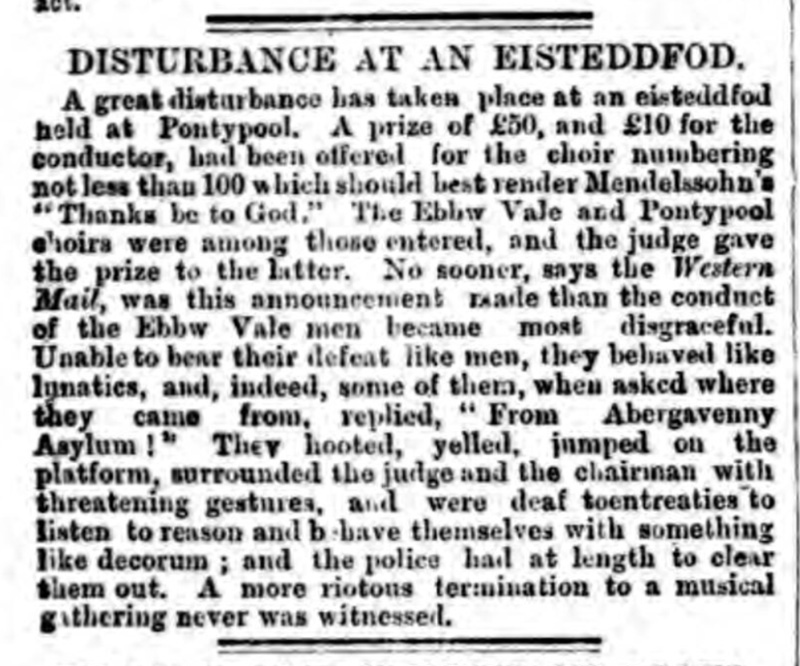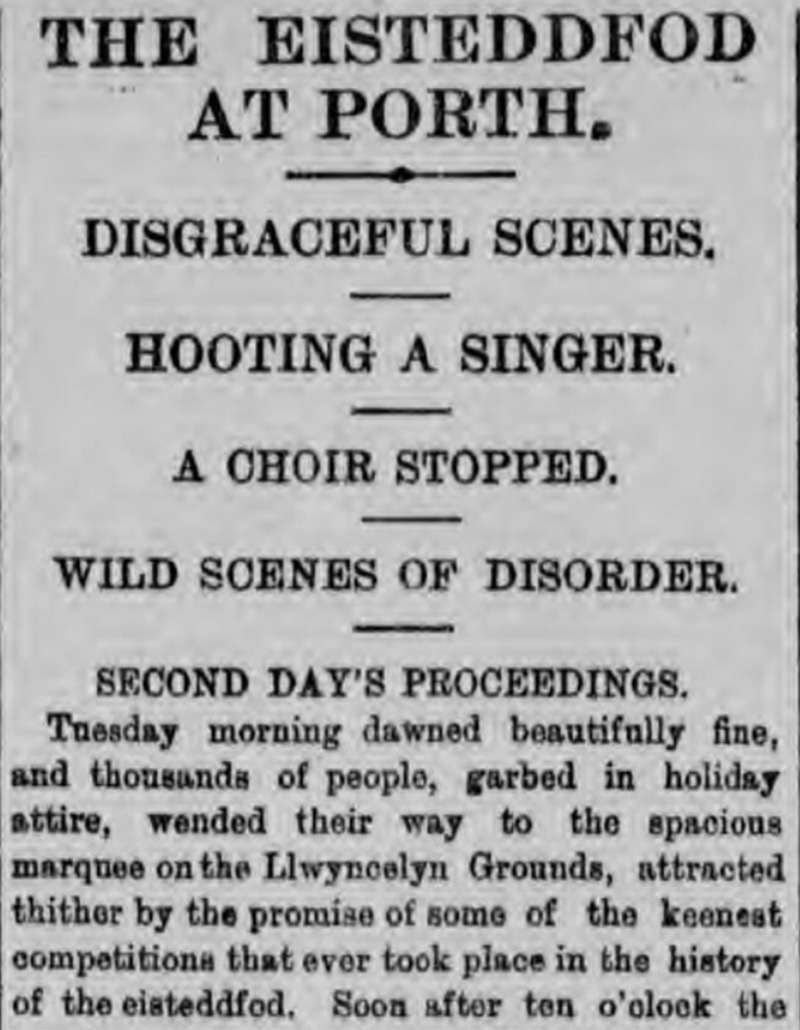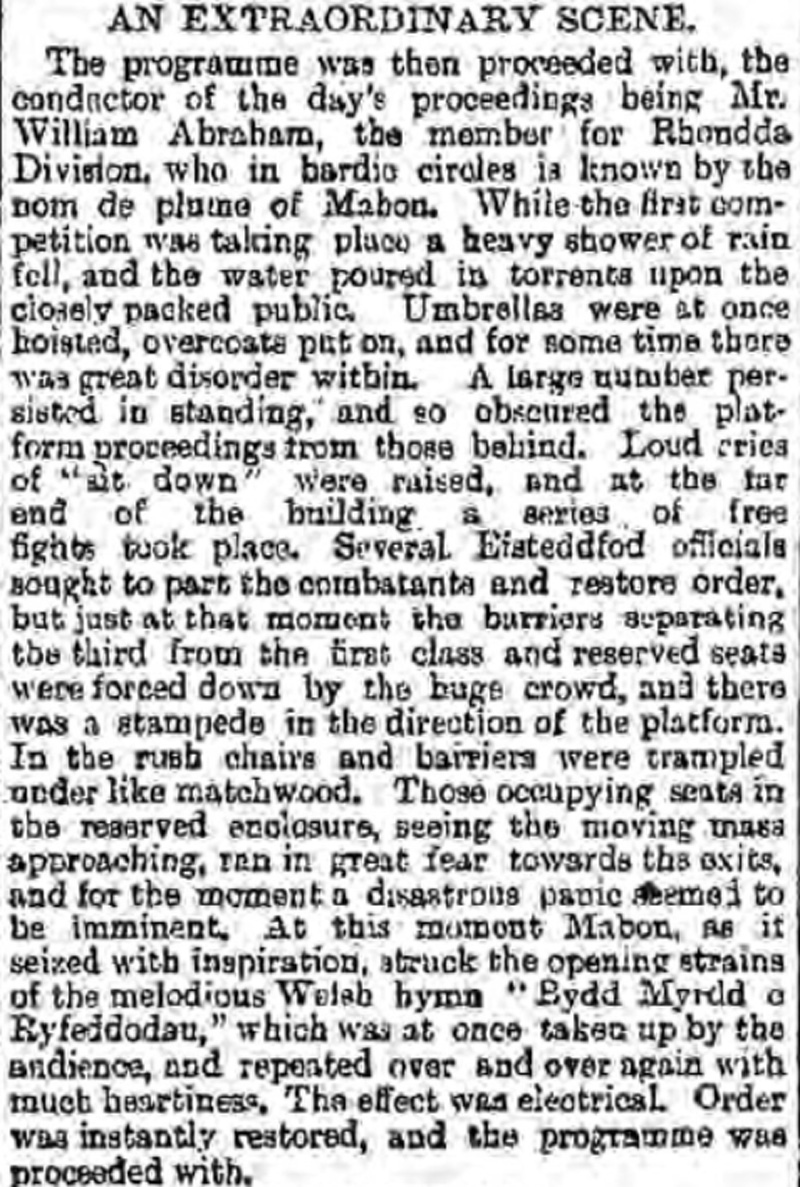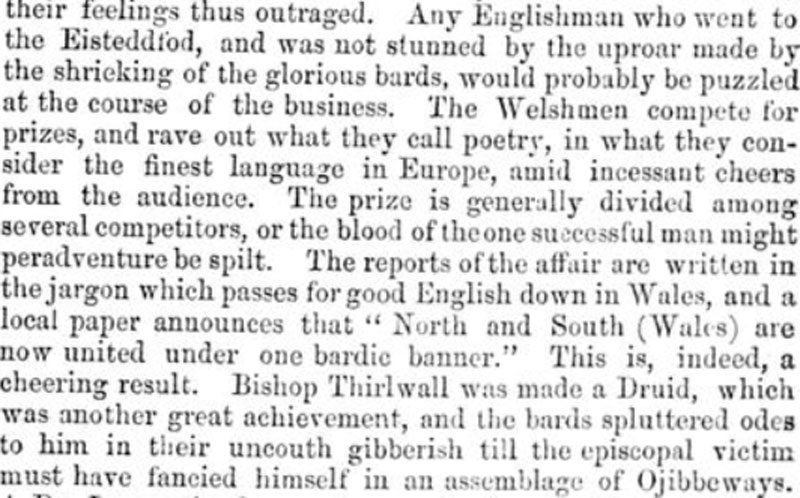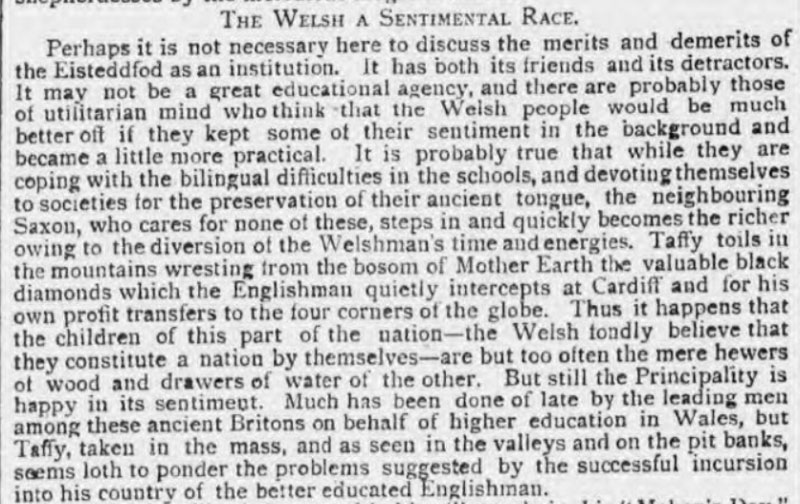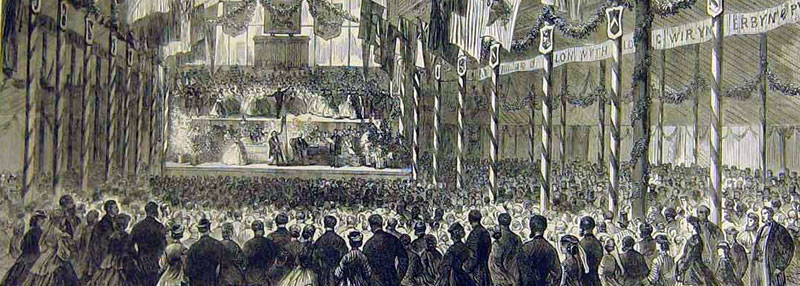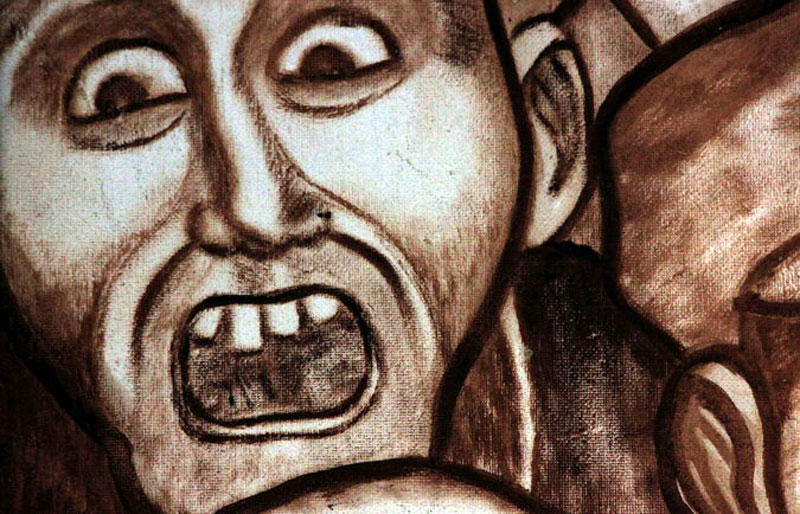
The National Eisteddfod; it’s that thing you see on BBC Wales Today once a year.
It lasts around 40 seconds – you see footage of people in wellies walking past stalls, clips of a few performers and then druids will plonk a crown on somebody’s head. And that’s it for another year – now, it’s over to Derek for the weather.
But eisteddfodau used to have the same kind of grip on Welsh life as sport does now. It was something you’d talk about in the pub, something you’d be a part of – competing with a choir or just going along to support your town or village.
That was back when most Welsh people spoke Welsh; before a London elite decided that we needed to be ‘cured’ of our language. And while they were working so hard to dismantle Welsh culture, the last thing they needed was a pesky festival to promote it.
It’s the reason why the National Eisteddfod became one of the favourite targets for the bigotry and bile of the English media during the C19th. Here’s a typical example from The Spectator on September 12, 1863:
Here’s another from the Pall Mall Gazette, July 29, 1897. The way it talks so brutally, and honestly, about what was being done to Wales at the time is staggering.
Despite these constant attacks, the eisteddfodau continued to thrive. And while the majority of Welsh people still spoke Welsh, it had a different vibe to the modern-day equivalent.
There wasn’t the same burden of having to preserve and promote the language. It didn’t have the same kind of middle-class respectability; it was much more of a rough and tumble affair.
They were often referred to as Welsh Olympics – fusing together the celebration of culture with the fervour of a sport. It was working class people getting passionate about art and music and ideas; so it was obviously something which needed to be ‘civilised’ out of us.
But here’s a glimpse back at what it used to be like. Back to a crazy world where Eisteddfod hooliganism was a thing:
